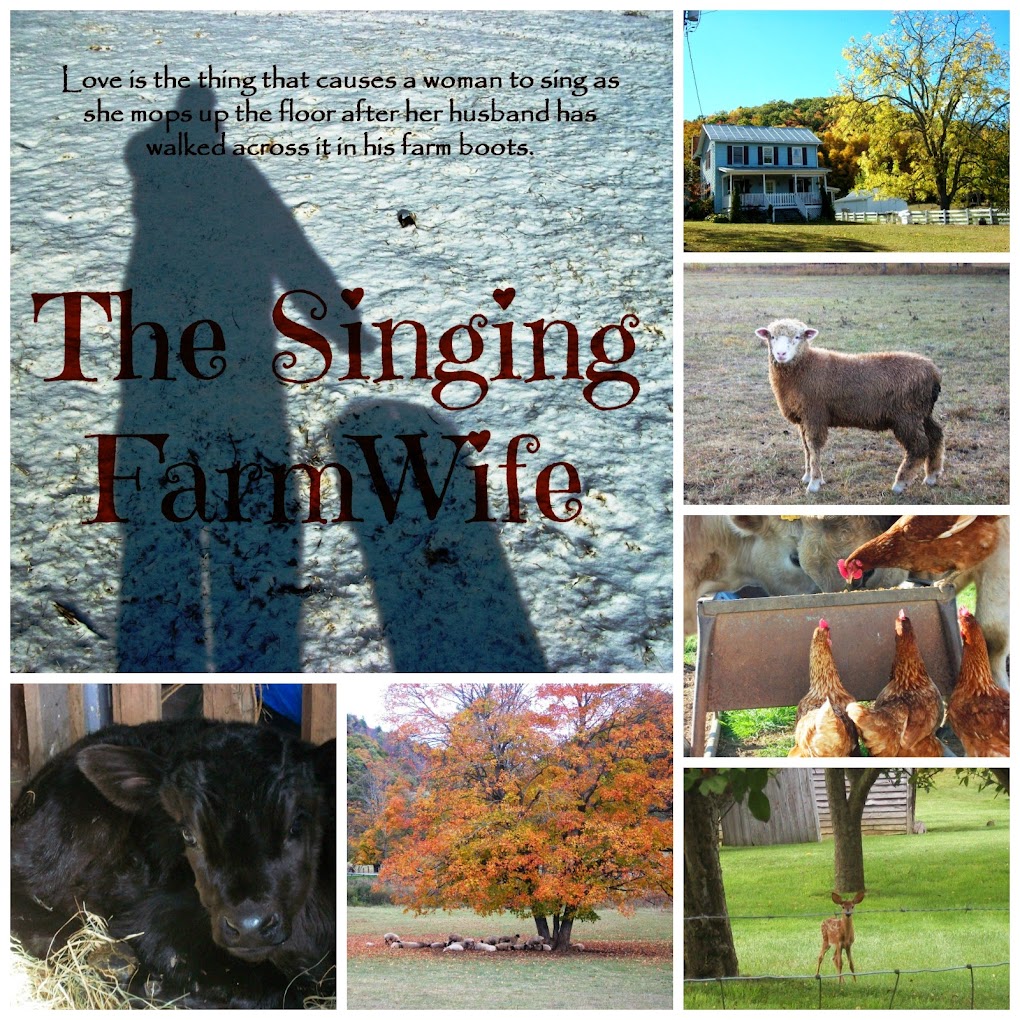After two weeks of being confined in the dark shed, the calf
has been granted his first freedom. It’s
a balmy 34 degrees this morning, the first above freezing weather we’ve had in
almost two weeks, and the calf is strong now, eating grain along with his
bottle of milk, so it is time for him to have a little frolic. Last week, he was joined in his snug stall by
an old ewe, who had gotten weak, and she ventures out with him into the snowy
back forty.
Luke, our rabbit beagle, loves the calf and he is excited to
finally have a chance to play tag. They
skitter across the frozen ground and the calf ducks his head, spinning
wildly. Luke follows along prancing his
joy. Then, the calf looks up and sprints. He is running with his tail high, the way
calves do when they’re warming up on a cold morning. He whirls to face Luke who finds he must now
dodge the enraged ewe. She hasn’t paid
much attention to the calf while they were in the stall. He’s been more of an aggravation to her,
butting her out of the way when he wants to steal some grain from her
bucket. But, this morning, her
protective instincts take over. The ewe
lowers her head and, bam, she bowls Luke over.
He jumps up and circles to her backside, thinking she wants to play.
She spins, looking for him, but he is already back to the
calf. They are standing nose to nose and
she stomps her foot in warning. Luke
knows what this means . The last ewe who
did that to him, got in a good kick with her front foot. He backs off and runs over to the chicken
house to see what the hens are up to.
I opened their door earlier this morning and several have
flopped out into the snow. They are
pecking and making the little beeping noises they make when they are
happy. Luke bounds up, scattering them,
but before he can engage in a game of “chase the chickens and watch them flap”
I call him off. I can’t decide whether
to leave him out or take him back in the house with me.
Yesterday, we found a dead chicken. She was breast up in the snow surrounded by a
neat circle of soft feathers. Her chest and
body cavity had been eaten out and there were no tracks in the snow around her. I don’t think Luke did it. I am hoping that he still thinks chickens
hurt.( Luke's Lesson ) Hawks and eagles eat
chickens that way, pulling out feathers and tossing them all around. As I am trying to decide whether or not to
trust him with the girls, I hear a hawk scream overhead. It is riding the high winds, hanging
motionless a half a mile above. Another
scream to my left signals a second hawk, who is slightly higher and flapping
against the wind. It seems to me that
they are watching the brown chickens against the white snow.
That settles it. Luke
will stay out. Maybe he’ll keep playing
with the ewe and calf and the hawks will be frightened by the movement. The chickens have just resumed laying pretty
well, and I don’t want to lose another one.
I leave the door of the coop open so the chickens can duck inside
quickly if they need to. Then I go
inside. I will be haunting the windows
today.

















